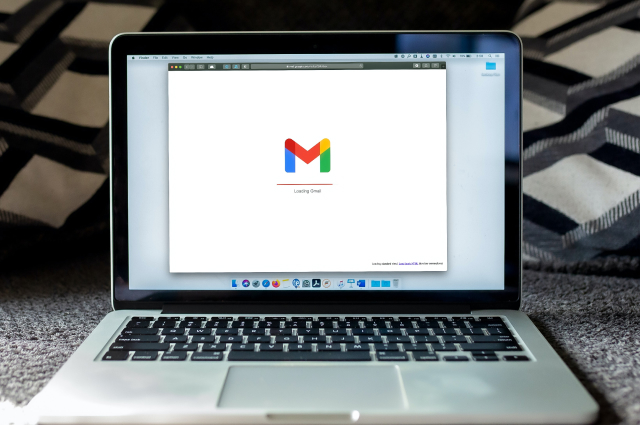Updated September 15, 2021
Website visitor tracking software helps companies get more out of their web traffic. It’s a tool that businesses of all sizes use to identify new leads, target existing leads more effectively, and optimize their web pages, among other things.
But technology is constantly evolving. The website visitor tracking software of today may not be the same tomorrow.
We’ve put together this article to help you explore where we’re at with visitor tracking software and chart its course for the future. This information will help you allocate your time and money wisely, and select the best software for your growing business. It’s critical that you don’t fall behind the competition when it comes to visitor tracking and lead prospecting.
Understanding Website Visitor Tracking Software
What it is
Website visitor tracking software provides you with information about who’s visiting your website. The exact capabilities of the software you use will depend on the provider.
A platform like LeadLander will tell you:
- Who is visiting your website
- Whether they have any known associations with a company
- What pages they’re looking at while on your website
- How they got to your website in the first place
Learn More About LeadLander By Signing Up Here
Why companies use it
Businesses across all sizes and industries view website visitor tracking software as an investment in their future. That’s because it provides valuable data, which helps optimize both a company’s marketing and sales branches.
There are several ways this can happen.
For example, website visitor tracking software helps marketing departments show them which types of content are getting the most attention. This enables marketing employees to fine-tune their outreach strategies so that they’re prioritizing the highest-performing content.
Sales team members can also use insights gained from tracking software. Knowing which type of content a prospect interacts with most can indicate what type of sales pitch will work for them. In this way, web tracking software helps you target your leads more effectively.
Where We’re At Now
Currently, websites and the companies that run them are free to collect many different types of data from visitors. A website might track your:
- IP address
- Your click-path history
- Information about your browser and device
- Information about your browsing history across other sites
This data can provide insight into what leads care about based and their online behaviors.
A growing number of consumers are unhappy with the invasiveness of this free-wheeling approach to data collection. Governmental bodies like the EU and the California State Assembly have passed modern privacy legislation that sets boundaries around the sort of data website tracking software can store.
The problem is that much of the modern web’s marketing infrastructure is built on insights from this data — which companies may not be able to collect for much longer.

Google’s Big Upcoming Change
Google is one of the most important names in web-based marketing. The company’s SEO rankings play a crucial role in determining a website’s traffic, which is tied to how much business it can generate online.
However, the company’s advertising system leaves a lot to be desired regarding consumer privacy. That’s why Google announced in early 2020 that it would be coming up with an alternative to the current cookies-based advertising model that much of the web runs on.
Introducing Federated Learning of Cohorts (FLoC)
Google’s solution to the increasing consumer demand for digital privacy is called the Federated Learning of Cohorts, or FLoC for short, which attempts to strike a better balance between consumer privacy and internet marketing.
Under the FLoC model, advertisers would target users based on a shared trait instead of individuals. This keeps users’ identities protected while still allowing companies to target the consumer groups they think are most likely to buy their products.
Google says that the system will be at least 95% as effective as the existing cookies-based internet marketing framework while also providing consumers with the additional digital privacy that they want.
FLoC is still a work in progress
Google recently postponed its release of the FLoC system for now, by two full years, Digiday reported. The company appears to still be in the ideation phase. A lead engineer suggests that FLoC may utilize a topic-based system instead of a cohort-based one.
Under this model, websites would receive a topic-centric ID, such as health and wellness or music. Marketers would then be able to display their content on websites that align with their target audience’s interests instead of reaching out to individual audience members through a cohort system.
It isn’t clear which model Google will decide to go with. That said, your company should be prepared to adapt to whichever emerges from the design process when the time comes.
2021 Update on FLoC and the end of the cookie-fueled internet
Currently, Google plans to phase out third-party cookies on Chrome over a nine-month period, beginning in late 2022, and ending in 2023. However, even this deadline appears to be flexible.
The initial FLoC results have encouraged ongoing development of the new system, which is now being called the “Privacy Sandbox.” The Google blog promises that this method is “the best path forward to improve privacy for web users,” while still ensuring that “advertisers can reach the right people for their products.”
Chrome has designed a new proposal called FLEDGE, which encompasses visitor tracking software. It involves the idea of becoming a “trusted server” by adhering to particular Chrome guidelines, and then collecting campaign data. FLEDGE is still in the testing phase, but it will preserve the privacy of its audiences while still enabling company data collection.
Google’s recommendations for business owners
Google makes two recommendations for business owners to keep up with the changing times.
- Keep up with Privacy Sandbox proposals in forums like W3C’s Improving Web Advertising Business Group,.
- Work with your technology partners that can update their software according to the new demands of FLoC proposals and trials. If your current software solutions do not have a plan, it may be time to make the switch to a more forward-thinking partner.
The Potential Impact Of Legislation
Legislation is one other crucial item to keep your eye on in this space. The EU recently passed its new digital privacy law, called the GDPR. And California has its version of this, which is called the CCPA.
These pieces of legislation (and others like them) typically mandate certain behaviors from online advertisers and prohibit others. For example, under the GDPR, companies in the European Union can only store certain types of user data. And they must give users a way to opt out of this.
Digital privacy legislation is challenging because of the global world we live in. For instance, even if your company is based in the United States, you may still need to comply with the mandates of the GDPR if you do business in Europe.
What These Changes Mean For Consumers
Both Google’s upcoming changes and the legislation discussed in this article give consumers more control over their digital footprints. The idea behind these changes is that the modern world needs to expand existing definitions of privacy to the digital space.
In the future, consumers will likely get to choose whether they want to share their information with a particular company or not. This may create a scenario in which companies need to incentivize their website visitors to give them access to their information.
A company might use the enticement of a one-time discount to get a new lead to give them access to their data. This type of dynamic has the potential to shake up how businesses interact with their online audience fairly significantly.

What This Means For Your Company
Regardless of which form Google’s FLoC update ultimately takes, it will hugely impact digital marketing. For example, the company said it would stop offering Google Ad buying tools that target individual users in 2022, according to Search Engine Journal.
That means your business would need to develop an alternative strategy at that point to continue marketing its products or services online.
Additionally, it will be more important than ever for companies to stay up-to-date with the latest legislation surrounding digital privacy. More specifically, you need to be familiar with the policies in place in each part of the globe you operate in — especially if you sell products online.
Ultimately, it’s still not entirely clear what the future of website visitor tracking software will look like. The answer will depend on how Google deploys its FLoC update, and what types of major digital privacy legislation exist in the future.
One clear thing that’s clear is that your company should be prepared to adapt to whatever the future brings. And one of the best ways to make sure that you’re able to do that is by selecting the best website visitor tracking software for your needs now.
LeadLander is the ideal tracking software for your company
LeadLander is one of the most respected and compliant visitor tracking software options in the industry. Our platform can help you remain competitive in the shifting, competitive digital marketing landscape. The LeadLander team is fully aware of the upcoming changes in the visitor tracking landscape, and is continually innovating and adapting its software to better suit new technologies and legislation.
What’s more, you can be sure that LeadLander will be here to guide you every step of the way as we move towards whatever the future of website visitor tracking software looks like.
Related Reading


